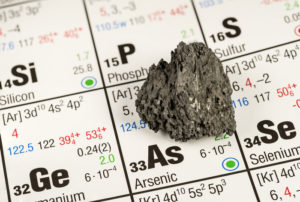Arsenic is a toxic metal which is very prevalent in our environment, water and food supplies. It’s also exceedingly toxic to the kidneys and other organs.
For many years scientists have been aware that high levels of arsenic can be harmful to kidneys which filter toxins out of the blood. That is the reason there are limits of allowed arsenic in drinking water.
In a recent study it was learned that even the lowest allowed levels of arsenic can be enough to cause kidney disease.

Arsenic is an extremely prevalent toxin which has a severely harmful impact on health.
The contamination of arsenic is a worldwide issue and you can get arsenic in your system just from drinking water. The kidney is the one organ that removes the wastes and toxins from our body and if it gets damaged it can cause serious effects on our bodies.
It is a known fact that exposure to arsenic can lead to renal dysfunction and usually kidney cells regrow to recover but too much exposure to arsenic can turn the illness into an irreversible condition.
Chronic kidney disease is progressive and leads to kidney failure at which time toxins will no longer be removed into the bloodstream.
Arsenic is often used in pesticides and, by extension, different forms of produce and grains. Seafood also has higher levels of naturally-occurring arsenic which is usually excreted by the urine, but if the kidneys are impaired this may not be the case. Seaweed also, has been noted to exhibit higher than normal levels of inorganic arsenic.
Too much exposure to arsenic can make kidney cells produce large amounts of proteins which results in kidney fibrosis disease which can be reversed back to normal by an FDA-approved drug presently used for blood cancer.
If this treatment is approved it can be life-saving as there is currently no cure for kidney fibrosis.
If you suspect arsenic is playing a detrimental role in your own health, you should definitely see about getting tested for this harmful toxin and ensure you know what your levels are.


